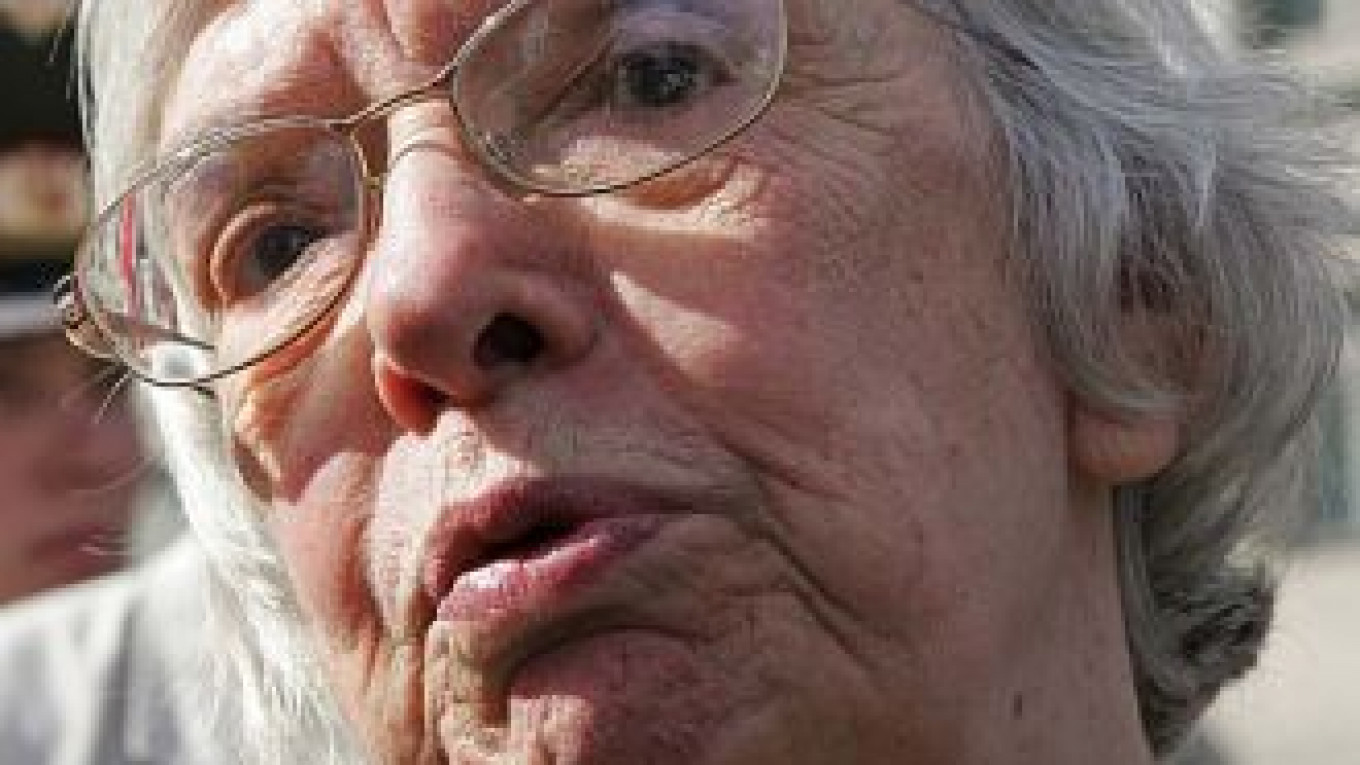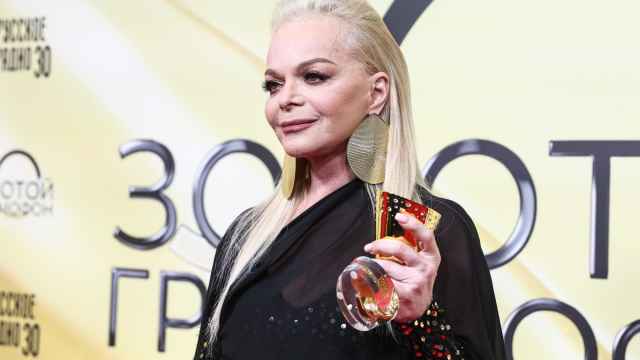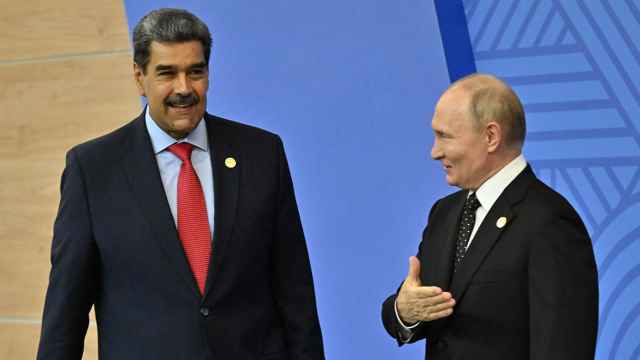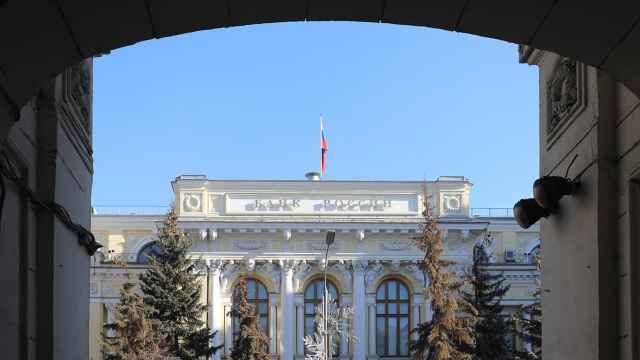It's been almost 45 years since Lyudmila Alexeyeva stood shivering outside a courthouse under the watchful eyes of KGB snoops, awaiting news from the trial of a friend charged with slandering the Soviet system.
On Tuesday, 83-year-old Alexeyeva will be out in the street again, defying authorities and risking arrest by demonstrating for freedom of assembly on a central Moscow square.
One of the few survivors from a 1960s circle that spawned the Soviet dissident movement, Alexeyeva is sure that Russia will, in the "fully foreseeable future," be a democratic, law-based state whose leaders respect the rights of citizens.
But not in her lifetime.
"Will I live to see it? Hardly — I'm 83 years old. But this does not stop my work," Alexeyeva said in an interview.
Alexeyeva's work as Russia's most prominent human rights activist and head of the Moscow Helsinki Group, the country's oldest active rights group, will take her on Tuesday to Moscow's Triumfalnaya Ploshchad. The square was fenced off by the city last week to make way for construction of an underground parking garage.
Prime Minister Vladimir Putin said Monday that democracy protesters marching without permission deserved to be beaten.
Kremlin critics call the square's closure a clumsy bid to neutralize activists who have tried to gather on the square on the 31st of each month to support the legal right to freedom of assembly.
Authorities routinely deny permission for the demonstrations — which activists say they do not need — and police break up the protests before they can begin, dragging protesters away.
Alexeyeva is often spared because of her age and icon-like status, but the tiny, hunched dissident was removed and bused away from the square by police last Dec. 31 — a decade to the day after Putin came to power.
That action prompted protests from the United States and the European Union. European Parliament President Jerzy Buzek, who awarded Alexeyeva the parliament's Sakharov human rights prize weeks earlier, said he was "deeply disappointed and shocked."
The Triumfalnaya Ploshchad protests echo a Dec. 5, 1965, demonstration, just down the road on Pushkin Square, that marked the birth of the Soviet human rights movement.
Protesters decried the prosecution of writers Andrei Sinyavsky and a friend of Alexeyeva's, Yuly Daniel, and demanded that the Kremlin respect their rights under the Soviet constitution.
When the two were tried that winter for publishing works abroad, Alexeyeva and others stood outside the courthouse all day. Foreign correspondents and KGB officers were also there.
"We didn't know then that we were a movement," Alexeyeva said in an interview at her sunlit apartment, in a room decorated with dozens of blue-and-white porcelain figurines. "We thought we were just a circle of friends who were concerned."
Sinyavsky was sentenced to seven years in a gulag and Daniel to five after a propaganda-poisoned trial, marking the end of the "thaw" that followed Soviet dictator Josef Stalin's death and a return to tighter state control.
Subjected to searches, telephone taps and dozens of KGB interrogations, Alexeyeva immigrated to the United States in the late 1970s. But she returned after the 1991 collapse of the Soviet Union and found a "golden decade" of freedom, which ended when Putin took power on the last day of 1999.
"Putin, when he came to power and found such unpleasant — for him — phenomena as the existence of civil society and a human rights defense community, decided to rein them in."
Despite restrictive legislation and regular harassment, Alexeyeva said, the Putin era is not exactly back in the Soviet Union; activists can work openly with far less risk of prison or exile.
But in a way, the stakes are even higher.
"Back then, there were prisons and psychiatric hospitals, but they didn't kill anyone," she said. "Beatings were extremely rare, and murders just didn't happen. And now they do … not one of us knows who will draw the short straw."
In January 2009, human rights lawyer Stanislav Markelov and a Novaya Gazeta journalist were gunned down on a central Moscow street. In July 2009, prominent human rights worker Natalya Estemirova was abducted by her home in Chechnya, shot and found by a roadside, drawing international outrage.
Under Putin, Alexeyeva said, the Federal Security Service operates with far fewer restrictions than the Soviet-era secret police, its agents free to abuse their authority for financial gain with little fear of punishment.
New legislation to expand the powers of the FSB is unneeded because "they already do whatever they want," she said.
Putin, who served as president from 2000 to 2008, is considering a return to the Kremlin in 2012, when an election victory could lead to 12 more years as president.
But Alexeyeva said change is on its way regardless of who is in charge, contending that Russians are increasingly reluctant to accept the will of those in power as law.
She pointed to President Dmitry Medvedev's decision last week, in the face of growing protests, to suspend a highway project that threatens the Khimki forest on the northern outskirts of Moscow.
"The more often there are such cases in which public opinion affects the decisions of the authorities, the closer we will be to democracy — and in the end, we will have it," Alexeyeva said.
"Putin is not such a fool," she said. "If he understands that he can hold on to power only by abiding by the laws and rules of a democratic state, he will abide by them."
A Message from The Moscow Times:
Dear readers,
We are facing unprecedented challenges. Russia's Prosecutor General's Office has designated The Moscow Times as an "undesirable" organization, criminalizing our work and putting our staff at risk of prosecution. This follows our earlier unjust labeling as a "foreign agent."
These actions are direct attempts to silence independent journalism in Russia. The authorities claim our work "discredits the decisions of the Russian leadership." We see things differently: we strive to provide accurate, unbiased reporting on Russia.
We, the journalists of The Moscow Times, refuse to be silenced. But to continue our work, we need your help.
Your support, no matter how small, makes a world of difference. If you can, please support us monthly starting from just $2. It's quick to set up, and every contribution makes a significant impact.
By supporting The Moscow Times, you're defending open, independent journalism in the face of repression. Thank you for standing with us.
Remind me later.






